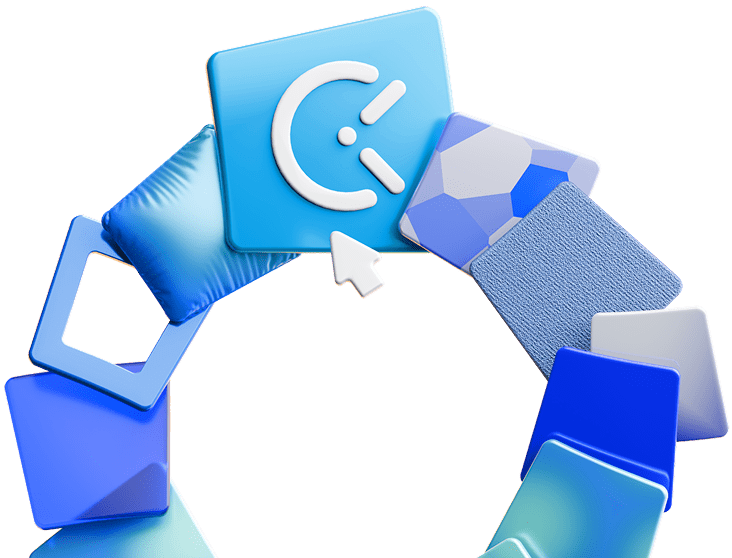In recent years, there’s been a noticeable change in the number of people who are more productive at night. We call them night owls.
It’s an interesting phenomenon that involves genes, lifestyle, personality type, and even brain chemistry.
Night owls seem to be thriving — and in this article, we’ll delve into the core of their productivity, the biology of their inner clocks, and how you can stay focused and energized when working at night.
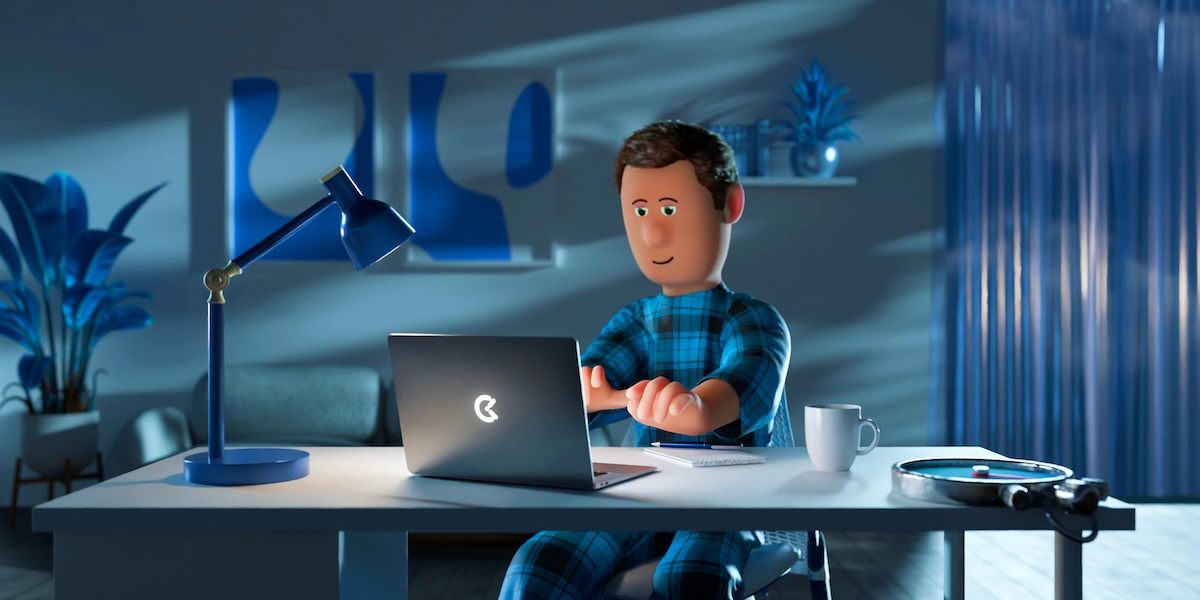
Why are some people more productive at night?
Have you ever wondered, “Why do I focus better at night? Is there something wrong with me?”
Nothing’s wrong. We’re all built differently and have different personality types — not to mention our environment, biology, and brain chemistry.
In that sense, some people experience more benefits of working at night than during other times of the day. Let’s see why in more detail.
Reason #1: Your genes may be to blame (or thank)
If your parents felt more productive at night, chances are you would, too.
According to this Journal of Veterinary Medical Education study, your chronotype (variations of most productive daily times for individuals) might be genetic.
Of course, this isn’t set in stone, but our body clocks, including our alertness or sleep patterns, may be encoded in our DNA.
Reason #2: Your brain is wired for late-day peaks
No 2 people have the same creative expression, cognitive functions, or spike of focus.
Do you always seem to have something to do late at night? Well, it might simply be your brain’s time to shine.
While early birds experience a mental boost in the morning, night owls get it in the late afternoon or evening.
Reason #3: Circadian rhythm runs the show
Our circadian rhythm is the internal 24-hour cycle that dictates when we feel sleepy, hungry, or mentally alert. For night owls, this cycle is shifted later — energy surges happen after sunset, not before dawn.
According to Business Alignment Strategist, London Wolfe, it’s important to be aware of your body clock so you can live your life to the fullest without stress or pressure:

“I am a night owl and have been this way all of my life. My mother also jokes that I was like this in the womb. I feel we all have our own energy flows and have to learn how to work with them. As a neurodivergent, I also get overly stimulated and create systems where I will work creatively through the night so I can have more leisure time during the day.”
💡 CLOCKIFY PRO TIP
Both mental and physical exercises can do wonders for your productivity. Here’s what you can try for yourself:
Reason #4: Lifestyle and environment reinforce your routine
Some night owls have adjusted to working at night simply because their daily lives and responsibilities allow them to do so.
For example, people with kids might feel more focused after they’ve put their children to bed. Some remote workers might prefer the quiet time when everyone else is asleep. Additionally, students may enjoy late-night study sessions to balance their classes and social life during the day. Or, you might simply love the nighttime.
Reason #5: Nighttime feels more peaceful and focused
There are fewer emails, fewer phone calls, and way less noise at night.
According to this article about night owls and ADHD, some people with ADHD even report that nighttime helps them focus better because of the reduced sensory input.
The sensory overload might lead to ADHD shutdown or even ADHD burnout when people with this condition feel trapped in a constant cycle of productivity bursts and fatigue.
💡 CLOCKIFY PRO TIP
ADHD is definitely linked to motivation. If you want to improve your productivity and deal with ADHD accordingly, check out this article:
Is it bad to be a night owl?
Not inherently. But as The Guardian article explains, there are health risks if you don’t manage it properly.
Night owls are more likely to develop health issues such as:
- Sleep disorders,
- Depression and anxiety,
- Metabolic issues (like type 2 diabetes), and
- Heart problems and high blood pressure.
This isn’t because you’re doing something wrong by staying up late — as long as you can get your 8 hours of sleep. This means that you should also be able to start your day later.
However, your natural sleep and productivity times may clash with what’s considered “regular hours.” In his book Internal Time, chronobiology professor Till Roenneberg referred to this phenomenon as “social jet lag.”
Not all is negative, though. A recent study on the effects of sleep patterns on mental sharpness found that night owls tend to have better cognitive functions compared to early birds.
According to the MyPerfectResume survey, a quarter of the surveyed working individuals reported being night owls, with 77% admitting to experiencing the negative impact of working outside their preferred hours. In addition, a whopping 88% are ready to make sacrifices just to have the ability to work according to their chronotype.
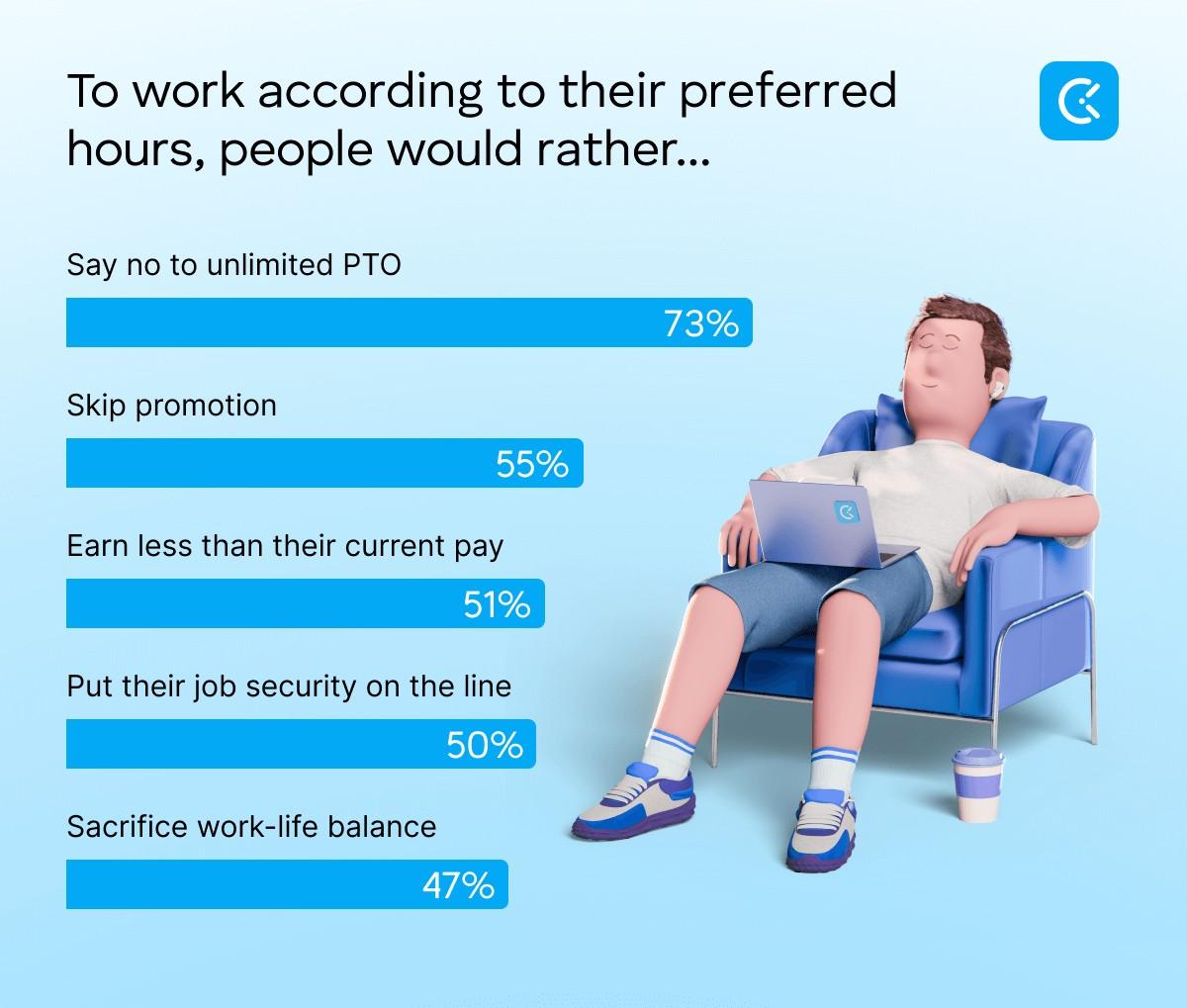
8 tips to be a healthy and productive night owl
Whether you work remotely or just feel most alive at midnight — here’s how to make your nocturnal schedule work for you:
Tip #1: Track your energy peaks
Use time tracking tools like Clockify to pinpoint the hours you feel most focused and productive. Once you know when your brain is sharpest, block that time for deep work. Slower periods can be used for breaks or some less important tasks.
To time block in Clockify, all you have to do is:
- Go to the Schedule tab in the app,
- Click on a time slot under a team member’s name (or your own) to create a time block,
- Enter the task name, choose a project, and set the duration,
- Use color coding to easily identify different tasks or priorities, and
- Repeat for the whole day or week to visually map out work in advance.
It’s a simple way to plan ahead and keep your team (or yourself) on track, as you can see from the image below.
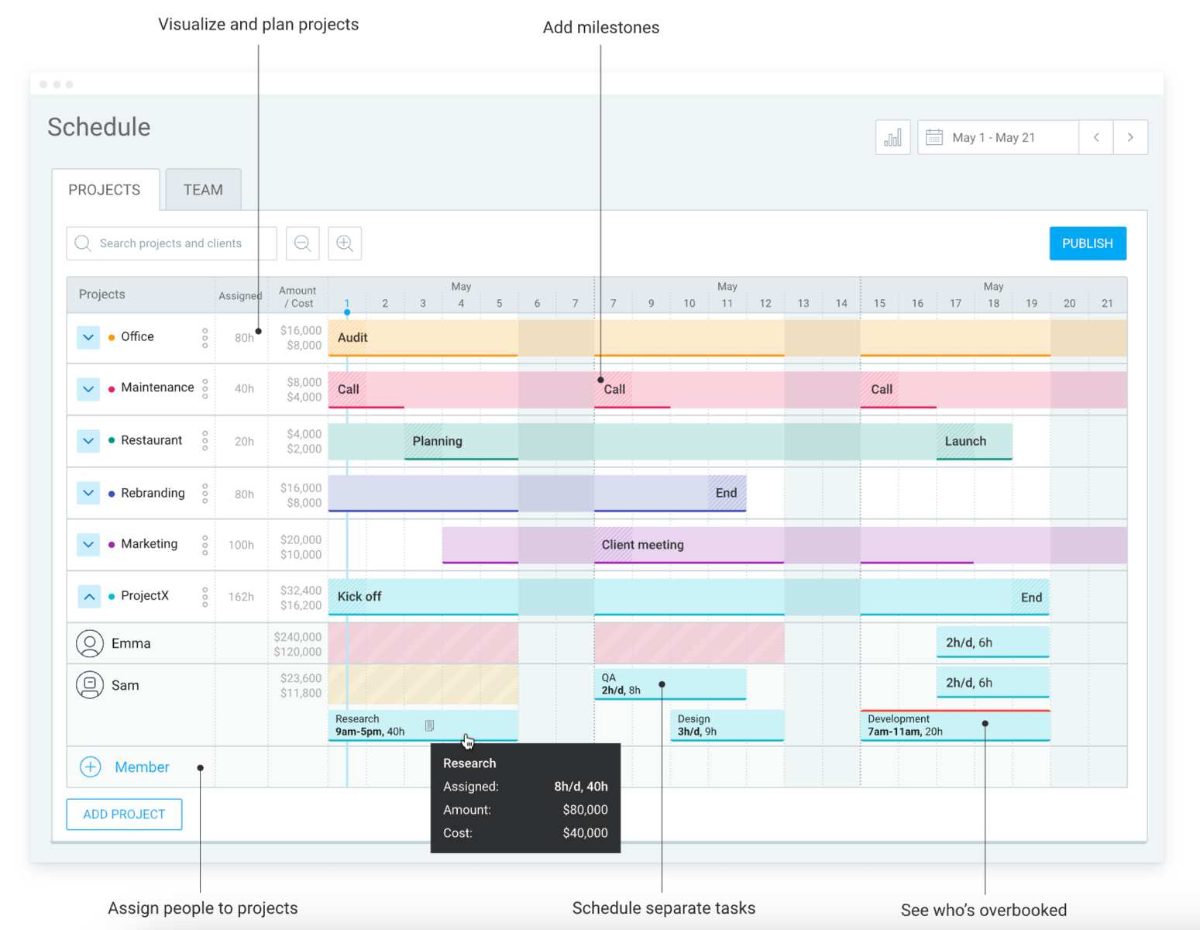
💡 CLOCKIFY PRO TIP
Struggling to find a method that will let you prioritize your tasks like a pro? Try the Pickle Jar Theory:
Tip #2: Stick to a consistent sleep schedule
Going to bed at 2 a.m. might sound too late, but as long as you keep it consistent and get enough sleep in the morning, your body and mind shouldn’t suffer. The crucial thing is for your sleep-wake cycle to be regular. Irregular sleep patterns are the biggest risk factor for health issues — not staying up late.
Tip #3: Automate your mornings
If you have to be up early, make your mornings easier. For instance, you can:
- Prepare your clothes the night before,
- Create a simple to-do list for early tasks, or
- Use smart alarms or wake-up lights instead of a loud noise.
We have prepared free to-do list templates that you can use however you see fit:
⬇️ Download Free To-Do List Templates
Tip #4: Ask for flexibility (if you can)
Don’t hesitate to ask your boss for a later start or more flexible hours. If your performance is strong, many managers will accommodate you.
If you’re a manager, why not extend that kindness to everyone on your team? Ask them if they have their preferred working hours.
💡 CLOCKIFY PRO TIP
Working hours differ all around the world. Learn more about how much people work in different countries here:
Tip #5: Use Clockify to structure your time
While primarily a powerful time tracking tool, Clockify also lets you:
- Set your day to start at your actual work time,
- Get reminders to track time (no more losing hours),
- Create time blocks that work with your preferred schedule,
- Use dark mode to reduce eye strain at night, and more.
You can tailor it to match your real-life circadian rhythm — not just the 9-to-5 mold.
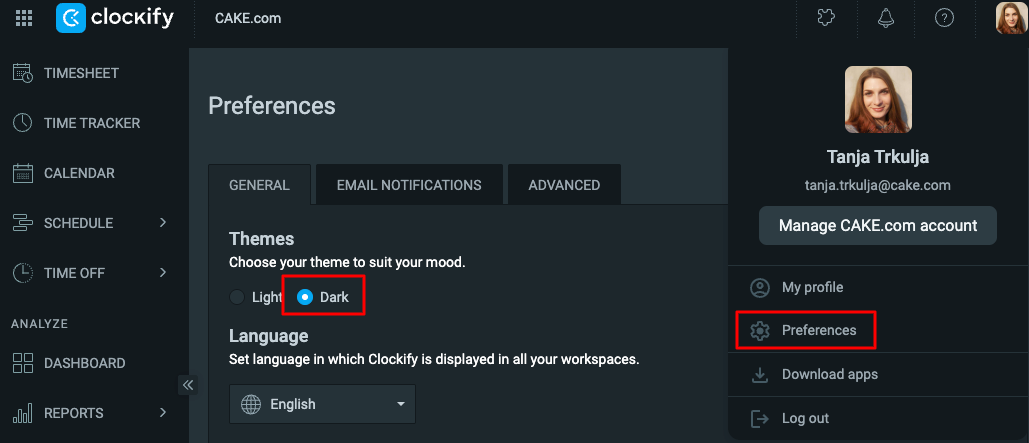
To activate dark mode in Clockify, go to Preferences, scroll to Themes in the General tab, and select Dark in the options.
Tip #6: Watch what you eat and drink at night
Avoid heavy, high-carb meals late at night — they can lead to grogginess and weight gain. Instead, go for light protein snacks or healthy fats. Also, skip sugary or caffeinated drinks.
According to this article about nutrition for night owls, you should still try to have regular meal times, even if your largest meal falls in the middle of the day.
Tip #7: Get moving
Night owls tend to exercise less and eat worse — not because they’re lazy, but because their schedules get moved around a lot. If you feel more productive at night, try these:
- Take a walk before or after your night shift,
- Do a 10-minute stretch routine, or
- Use a standing desk if working long hours.
Our expert interlocutor, London Wolfe, also mentioned her own tricks to make the most out of nighttime productivity:

“I try to stay away from things that can keep me hyped up, like soda or coffee late at night, so I can eventually crash with ease. I listen to brown noise or something. The key is giving myself wind-down time and preparing my priorities to accommodate the switch in day and night activities. Sometimes, it can backfire, but with physical activity, it allows me to tire myself out to release excess energy.”
Tip #8: Try to shift toward a “regular” schedule
If you’re struggling with your health or syncing with others, consider gradually shifting your schedule a bit earlier. Even a small shift might be enough to improve your mood, focus, and sleep quality.
Holistic time coach, Becca Rich, shared that she goes to bed around 9–10 p.m. and naturally wakes up between 2:30 and 3 a.m. to do a focused “wee hours” work session before returning to sleep. She offered her own tips for night owls and unconventional rhythms:

“Honor your body’s signals. Nighttime productivity works best when it’s not forced.
Create strong boundaries around rest. Make sure you’re still getting enough sleep overall, even if it’s split into chunks.
Use soft structure, not rigid routines. Light planning tools (like flexible time blocking) can help anchor your night sessions without stifling creativity.
Do your most meaningful work when you feel most energized. Productivity isn’t about volume, it’s about resonance.”
💡 CLOCKIFY PRO TIP
Learn how to master work scheduling so that your employees are happy and workload’s evenly distributed:
Use Clockify to master your nighttime productivity
“Why am I only productive at night?” Well, it’s just who you are. This doesn’t have to be a problem when you have a reliable ally like Clockify.
After all, Clockify lets you set your custom start times and track your work regardless of whether you start at 10 a.m. or 3 p.m. See below.

As a manager, you might worry about the inability to hold teams accountable or even a lack of visibility and transparency in remote work, especially when team members work custom hours.
Clockify was built to solve these problems, no matter your business niche. All your employees need to do is track their time whenever they start and finish work. And thanks to detailed reports, you’ll get full insight into who worked on what and when.
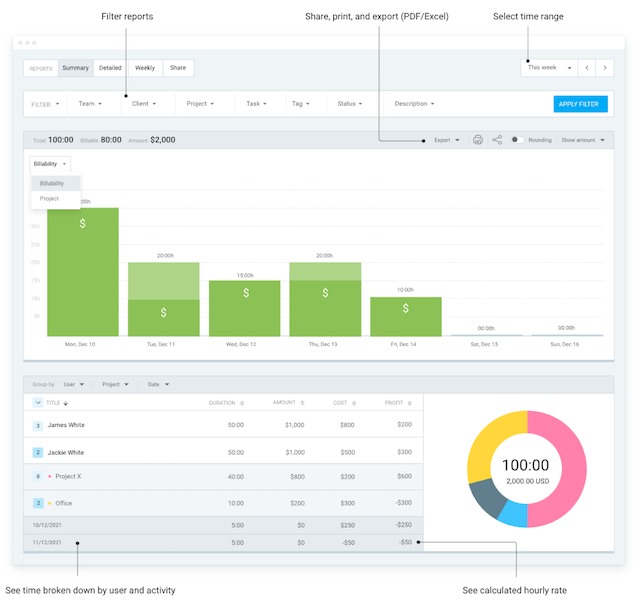
Here’s how to use Clockify reports to manage a team working at different times:
- Go to the reports tab in Clockify (choose summary, detailed, or weekly depending on what you need),
- Filter by team member, project, or time period to see who worked when and on what,
- Use time breakdowns to spot peak hours, track overtime, or catch gaps in coverage, and
- Export reports as PDF, Excel, or CSV for easy sharing with stakeholders or HR.
This way, you stay in the loop — no matter when your team is working. Not to mention that you can count on 24/7 customer support if you get stuck somewhere.
Clockify gives you the flexibility and data you need to make night work your best work.
